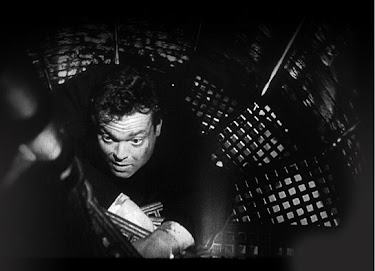Written by: Sheridan Gibney (written by), Norma Barzman (uncredited)
Starring: Laraine Day, Brian Aherne, Robert Mitchum, Gene Raymond, Sharyn Moffett. Ricardo Cortez, Henry Stephenson
 WARNING: Plot and/or ending details may follow!!!
WARNING: Plot and/or ending details may follow!!!The flashback has always been an essential part of the film noir formula. By showing events from the perspective of one who already knows the ultimate outcome of his mistakes, the audience is placed in a position of near-complete omniscience. Since we already know the outcome, but are powerless to change it, the story structure encourages an overriding element of fate. The hero is doomed – he knows it now, but didn't know it then. Is this the lingering disillusion left over from WWII? Where once a nation had marched proudly and patriotically into combat, it now recognised the pure folly of its enthusiasm. John Brahm's The Locket (1946) certainly boasts one of cinema's most audacious uses of the flashback narrative device, effectively utilising a "flashback within a flashback within a flashback" to tell a complex story in which three different protagonists find their lives ruined by the derangement of a single woman. This femme fatale doesn't mess around when it comes to potential husbands, and her victims – besotted lovers who are left helpless by a pretty face – are only too happy to be exploited.
John Willis (Gene Raymond) is about to marry Nancy (Laraine Day), the most charming and beautiful woman he's ever met. Just hours before the wedding ceremony, he is confronted by Nancy's former husband Dr Harry Blair (Brian Aherne), who pleads with him not to marry her, having experienced first-hand the pain of Nancy's betrayal. Just years earlier, Blair himself was a smitten newly-wed, and he, too, was confronted by one of his wife's former lovers (Robert Mitchum), who expressed the belief that Nancy was guilty of murder, a crime for she allowed an innocent man to be executed. The nature of her behaviour lies in a troublesome childhood that encouraged kleptomanic tendencies. The true beauty of this flashback technique is that the audience is treated to nothing but hearsay, and that each of these characters could just as easily be lying. Though The Locket appears to treat its flashbacks with sincerity, Alfred Hitchcock exploited this practice just a few years later in Stage Fright (1950), as did Bryan Singer long afterwards with The Usual Suspects (1995).
Laraine Day, certainly not an actress I'd associated with any sort of villainy, brilliantly utilises her innocent screen persona to paradoxically portray one of film noir's shiftiest femme fatales. Until the overly melodramatic ending, Nancy doesn't betray even a hint of malevolence. When Dr Blair first mentions Norman Clyde's name, she doesn't flinch, not even a momentary double-take that would have revealed the malice within. Is Nancy a guiltless victim being slandered by jilted former lovers, or is she everything they describe and more? The most frightening revelation is that, for most of the film, we can't even tell the difference. Despite its excellent strengths, The Locket unfortunately suffers from an obligatory ending in which the villainess receives her due, and I would have preferred a more understated approach. Perhaps, as she walks down the wedding aisle, Nancy could be perpetually tormented by the ringing melody of the broken music box, a symbol of her lifelong guilt. Or maybe – Hays forbid – she could have gotten away with everything, her next sucker already waiting at the altar.
7.5/10
Currently my #4 film of 1946:
1) It’s A Wonderful Life (Frank Capra)
2) The Big Sleep (Howard Hawks) *
3) Notorious (Alfred Hitchcock) *
4) The Locket (John Brahm) *
5) The Dark Mirror (Robert Siodmak) *
6) The Blue Dahlia (George Marshall) *
7) Dragonwyck (Joseph L. Mankiewicz)
8) A Night in Casablanca (Archie Mayo)
2) The Big Sleep (Howard Hawks) *
3) Notorious (Alfred Hitchcock) *
4) The Locket (John Brahm) *
5) The Dark Mirror (Robert Siodmak) *
6) The Blue Dahlia (George Marshall) *
7) Dragonwyck (Joseph L. Mankiewicz)
8) A Night in Casablanca (Archie Mayo)





_poster.jpg)


No comments:
Post a Comment